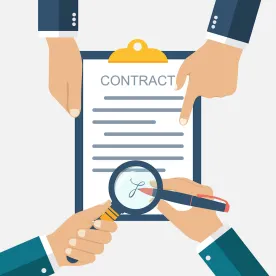A well-crafted letter of intent (“LOI”) adds value for the negotiating principals by helping to ensure the parties are in agreement on key deal terms before they spend significant time and money on diligence and definitive documents. It can also help the parties’ advisors understand the deal and prepare initial drafts of transaction documents that minimize the number of open issues to be resolved, thereby significantly reducing the time it might otherwise take to finalize the documents. Putting in the additional effort to flesh out details at the LOI-stage can thereby help reduce “deal fatigue” and frustration later on. Below are some often overlooked terms that can bolster your LOI to avoid time-consuming post-LOI disputes and increase the chances of a successful transaction.
-
In roll-over transactions, specify the equity buy-back terms. Rollover consideration can be a uniquely hot topic, since it binds equityholders to terms that survive closing. In established private equity backed platforms, buy-back rights and obligations are often non-negotiable. To avoid confusion and frustration, we recommend describing the specific buy-back terms in the LOI – this includes the price at which equity can be redeemed in certain events, and applicable definitions of key terms like “Cause” and “Retirement” that may serve as triggers for redemption rights or impact the repurchase price of equity.
-
Define indemnification terms. This is especially low-hanging fruit at the LOI stage, where the parties are incented to behave reasonably. Whereas a generic LOI may indicate that the parties will agree to “customary” indemnification provisions, the well-crafted LOI specifies applicable baskets, caps, and survival periods. It also calls out which representations will be “Fundamental Representations”. Buyers should also consider defining separate “Specified Representations” that are subject to thresholds and survival periods higher and longer than general representations. These may include representations regarding regulated industries (e.g., healthcare compliance and reimbursement), and sometimes tax and employee benefits. From a buyer’s perspective, the LOI should reserve for additional items that may be discovered through diligence. Defined indemnification terms in the LOI removes guess-work when drafting the purchase agreement, and saves precious time and costly negotiations at later stages in the transaction lifecycle.
-
Schedule certain defined terms. Agreeing to commonly-negotiated definitions at the LOI stage is another way to streamline negotiations by front-loading the work. We commonly see definitions of “Fraud”, “Debt”, “Knowledge”, “Loss” and “Material Adverse Effect” (as well as “Fundamental Representations” and “Specified Representations”, as noted above) specified in LOIs or in schedules thereto. These terms can typically be negotiated in the absence of full-blown purchase agreements, and isolating them in the LOI often provides for quicker resolution.
-
In RWI transactions, specify RWI terms. If the parties will require a representation and warranty insurance (“RWI”) policy, terms of the policy should be stated in the LOI – this goes hand-in-hand with the indemnification terms discussed above. The LOI should provide that the buyer will seek an RWI policy with a specified retention amount (and step-down, if applicable) and specify liability for amounts below the retention amount and how liability for the premium cost(s) will be allocated and paid for.
-
Define restrictive covenant terms. Restrictive covenants are another touchy subject, because they bind seller parties post-closing. The LOI should set forth the term, geographic scope, and restricted services applicable to sellers (and potentially key employees), as well as applicable carve-outs, grandfathered activities, and triggering events that would cause the restrictions to “fall away”. For two recent developments on the topic of restrictive covenants, see our articles here and here.
-
Define purchase price adjustments. Depending on the status of financial due diligence, the parties may wish to specify a closing cash target and working capital peg, and appropriate collars for purchase price adjustments if the closing working capital is above or below the peg (or outside of the range). Choosing a peg that accurately represents the target entity’s normalized working capital should be a relatively painless exercise, and determining the peg at the LOI-stage can help circumvent a party’s attempt to artificially inflate or reduce the amount of working capital required for operations or to use the peg amount as a “chip” in negotiating other terms.
-
Define reserve powers. If seller parties will maintain a controlling interest after closing, or if the transaction is structured as a joint venture, reserve powers will likely be front and center in the LOI. However, even in non-JV acquisitions, negotiating the LOI presents opportunities for both parties to think creatively and add value. For example, if there is a particular customer relationship that the seller wants to preserve, or if the seller takes pride in providing just wages to its current workforce, or if use of the seller’s branding outside of a particular market is particularly sensitive, consider whether reserving the right to approve certain actions might alleviate a pressure point that can be addressed in the LOI and reduce the risk of a “deal-breaking” issue popping up after the parties have spent significant resources on the transaction.
Signing the LOI is a critical step in any transaction. Getting your lawyer involved early is a good way to set the transaction on the right path, and to identify and address critical deal points when the parties are still playing nicely in the early stages of the relationship. If you are considering a transaction, consider reaching out to your attorney to assist with crafting a meaningful and strategic LOI.



 />i
/>i

